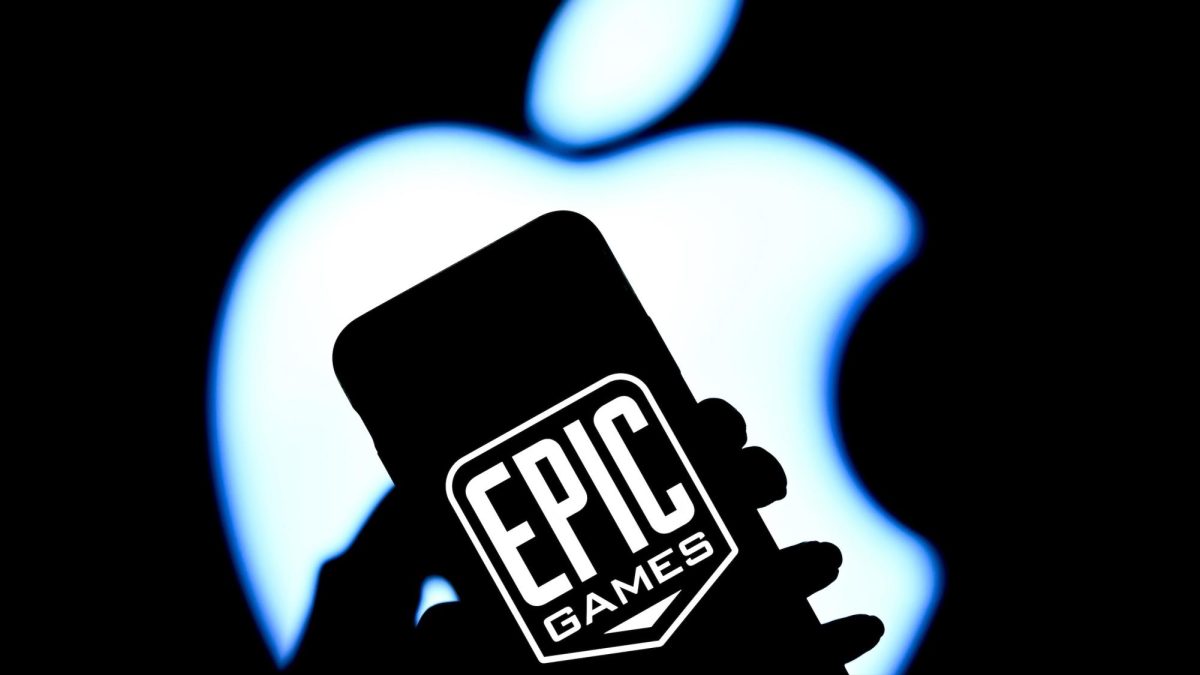Epic Games, the creator of the wildly popular video game, Fortnite sued Apple. The legal action revolved around Apple’s predatory practice of imposing a 30 percent commission fee on all in-app purchases. For years, the policy has been a point of contention and discussion in the tech industry. The dispute is based on the App Store, Apple’s digital storefront where millions of iOS users download and purchase apps for their devices such as the iPhone and iPad.
In fact, Epic Games violated Apple’s App Store policies to avoid the 30 percent fee which began the legal battle between the two giants. Epic Games avoided the fee by creating a way to pay for in-app micro-transactions directly within Fortnite. The system bypassed Apple’s storefront effectively eliminating the 30 percent commission fee.
However, in Epic Games’ filing, they argue Apple’s practices limit developers’ options for distribution because of their falsified and architected advantage. In turn, the practice is hurting developers and consumers because in-app transaction costs are increased to lessen the impact of the 30 percent fee.
Besides, Apple’s alleged monopolistic practices have been argued over for years. Developers in the tech industry have expressed their distaste for the 30 percent fee as they perceive it to be monopolistic. This perception stems from the fee being applied to all transactions made within the app. As a result, developers including Epic Games believe Apple is intentionally denying their right to fairly price their digital goods.
Epic Games’ efforts led Judge of the United States District Court for the Northern District of California, Yvonne Gonzales Rogers to reject Apple’s claims and the Ninth Circuit District Court of Appeals to affirm the decision. Both rulings, arguably agreed that Apple had acted in an anticompetitive manner restricting Epic Games’ ability to disclose alternative payment methods for their users.
In 2021, Judge Rogers ordered Apple to allow developers to link external payment methods for their users. Apple appealed immediately. The appeal was denied. Apple was forced to modify its stance on in-app payments lowering its fee to 27 percent; a mere 3 percent decrease.
Perhaps making matters worse is when Apple put developers in a bit of a rocky spot. Developers had to file transaction reports to Apple every 15 days to keep the external payment links, even after prolonging the restriction for three years by failing to provide alternative payment processing in ample time.
Yet, if the developers fail to pay their commission fee on time, Apple charges an interest fee for the late payment.
The California court rulings have prevented Apple from deterring developers’ efforts in promoting external forms of payment to avoid the 30 percent fees on in-app purchases through an enacted compliance plan. Furthermore, the injunction by Judge Rogers failed to mention that Apple cannot take a commission from external link purchases, though that is exactly what Apple is taking advantage of.
Though Judge Rogers did mention the potential risk in the injunction footnotes. Regardless, it was seemingly ignored. However, Apple has made exceptions for smaller businesses through its Small Business Program. Members of the program are taxed at a discounted rate of 12 percent while automatically renewed transactions will receive a 12 percent fee within two years or more.
Despite the lowered rates, developers are still forced to utilize external payment methods that likely incur a 3 percent fee equating to 30 percent. Given the circumstances, they aren’t saving as much money as one would assume.

“The manner in which Apple is going about killing Epic here as a competitor to the App Store is super egregious”, said Tim Sweeney, Epic Games, CEO on a call with the press.
Epic Games’ application for a developer account was planned to launch an app store for iPhone users in Europe. However, Apple rejected the request in an alleged retaliatory response to the defaming antitrust lobbying.
Additionally, users are met with an unfriendly security privacy warning that may discourage them from pressing forward. Apple also forces the external links to be exclusively accessible through the users’ device’s default search engine, further exacerbating the distance in achieving ease of payment. Deterrents like these enable Apple to continue imposing their alleged monopolistic practices onto developers.
“Epic’s egregious breach of its contractual obligations to Apple led courts to determine that Apple has the right to terminate ‘any or all of Epic Games’ wholly owned subsidiaries, affiliates, and/or other entities under Epic Games’ control at any time and at Apple’s sole discretion.′ In light of Epic’s past and ongoing behavior, Apple chose to exercise that right,” an Apple spokesperson said.
How can Epic Games and the rest of the developers get themselves out of this situation?
Epic Games must contest the compliance plan in a federal district court. A contempt filing would accelerate their efforts to prove Apple’s mis-compliance with the order terms. This may not generate much of anything other than an impending legal battle, given the Supreme Court had already previously declined to take up the case.
However, if Epic Games doesn’t respond, then it’ll be at the cost of the consumer and developers utilizing the iOS storefront for distribution and access. But, when Apple seemingly has the mobile industry in a chokehold, there may not be a likely solution.










